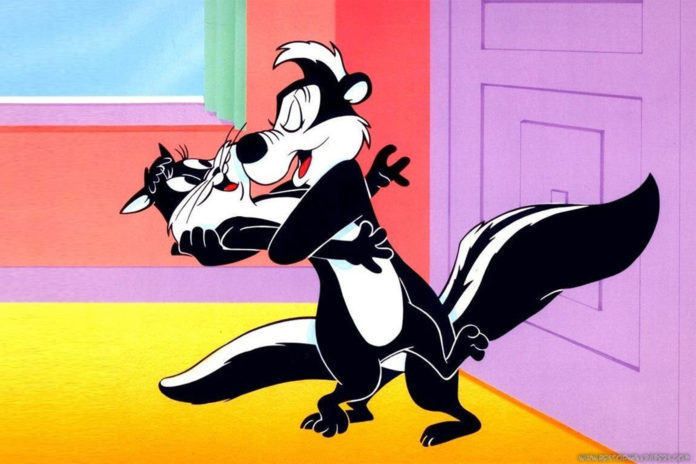

The iconic Looney Tunes character, Pepe Le Pew, will not appear in the upcoming movie, Space Jam 2: A New Legacy. Le Pew’s removal came after director Malcolm D. Lee took over the film from Terence Nance in 2019. But controversy began after New York Times opinion writer Charles M. Blow said the character “normalized rape culture,” leading to online discussions about censorship and nostalgia.
Though the French cartoon skunk is a popular character in the Looney Tunes lineup, some people online believe the skunk’s non-stop insistence towards his love interest, Penelope Pussycat, sets a bad example for children regarding consent.
André Loiselle, a film professor and the dean of humanities at STU, said characters like Le Pew should not be erased or censored, but debated about.
“I think that’s important for people to engage in debate,” he said. “I don’t want nostalgia to become absolutely, ‘no, this is my youth. I absolutely refuse to talk to anyone who does not accept that Pepe Le Pew [is] the best character ever.'”
Loiselle also said Le Pew is insulting as a Francophone because of the French stereotypes used, including the thick accent and always smelling bad. While he didn’t know anyone who found it controversial in the ’60s, he said he was “marginally insulted.”
Loiselle said there is a difference between material that used to be considered inoffensive and the meaning of that material changing over time than something that was always meant to be controversial and challenging.

As an example, he said the film American Psycho was meant to attack certain elements of 1980s America like the dangers of consumerism and Regan era economics.
AmandaTheJedi, a Maritime movie analyst YouTuber with more than 350,000 subscribers and STU graduate, tackled cultural subjects in film when she decided to make a series of videos focusing on the Twilight movies and books. In high school, she said she loved the Twilight books.
“There was a huge cultural backlash against it. Everybody trashed Twilight constantly,” she said. “But then, years later, it’s just kind of settled out to this area where it’s fun to talk about and still remember why you enjoyed it, but now you can kind of criticize everything that’s been wrong with it the entire time.”
AmandaTheJedi pointed out Edward Cullen’s stalking nature and Jacob Black’s lack of respect for autonomy. She said people love these kinds of stories because it’s a reflection of people’s feelings when they were teenagers.
She believes that when it comes to discourse involving controversial material, education is more important than scrubbing the record entirely. AmandaTheJedi said going back and examining material people love is important.
“It’s important now to be like ‘hey, you can still enjoy that thing because inherently, it wasn’t trying to be hurtful. But it’s important to talk about the ways that it could be hurtful,’” she said.
AmandaTheJedi believed a better way to handle the situation regarding Le Pew would be to acknowledge his problematic past in film as opposed to just cutting him out.
Stewart Donovan, a film professor at STU, said the issue is less about the content itself and more about who the content is meant for. Donovon said Le Pew is far from the only dangerous stereotype in older cartoons. One example was the character Speedy Gonzales before the 1940s, which used old Mexican stereotypes.
“They really cleaned Speedy up [after that]. Nobody’s talking about him yet,” said Donovan.
Loiselle said it’s important to let go of certain things that may be nostalgic. He said it’s important to understand that culture has changed.
AmandaTheJedi said when it comes to problematic media, there are some who wish to censor everything and some who believe everything should be shown.
“It’s very easy to see how things can be problematic and how they can hurt people. It’s important to talk about those things,” she said. “But we shouldn’t scratch them from existence because they are real. They represent reality and it’s important to remember where we came from and where we’re going.”
